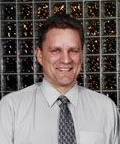Bits and Bytes: Cleaning up Your Hard Drive
By Steve Staves

Over time ,computers tend to get slower and slower and the sad part of this is that most people do not even notice this happening and they come to expect it of the computer. In this article I am going to cover a couple of the most important parts of computer cleanup – Old programs, temp files and optimization.
Old Programs
In the control panel is a utility aptly named “Add/Remove Programs”. If you run this component of Windows, you will get a comprehensive listing of all the programs that you have installed on your computer. Often, a lot of obsolete software remains – Periodically go through this list and remove games etc that are no longer needed – This helps to clean up valuable disk space. Be warned though – Do not just remove a program without knowing what it is because you may end up removing a crucial component.
Temp files
When you visit any web page on the Internet, all the images etc are downloaded into a temporary directory on your hard drive. When you open a program or a file, a temporary file is created and 9 times out of 10 these temp files are not removed when you close the program or shut down your computer. Over time millions of temp files accumulate slowing down your computer and eating up valuable disk space. Just the other day I cleaned up over 6Gb of temp files from one computer.
Why does this slow down the computer? When you open a program or load a web page, the first thing it does is to search through your temp files to see if the file/image etc already exists and if it does, it will load and use the local copy instead of recreating or downloading it again. Now, if you have millions of temp files then that search will take quite some time.
The best free, adware free program that I use and install on all computers is called ccleaner available from www.ccleaner.com. Ccleaner is what I would call a diamond in the rough because it does everything you need – Here is a listing of some of the features.
Cleans the following Windows components
- Internet Explorer: Temporary File Cache, URL History, Cookies, Hidden Index.dat files, Last download file location.
- Firefox: - Temporary File Cache, URL History, Cookies, Download manager.
- Recycle Bin.
- Clipboard.
- Windows Temporary files, Windows Log files.
- Recent Documents (on the Start Menu), Run history (on the Start Menu), Windows XP Search Assistant history, Windows XP old Prefetch data.
- Windows memory dumps after crashes.
- Chkdsk file fragments.
Advanced Options allow cleaning of
- Menu Order cache.
- Tray Notifications Cache,Window Size and Location Cache , User Assist history.
- IIS Log Files.
- Custom Folders.
- Application Cleaning:
As well as cleaning up old files and settings left by standard Windows components, CCleaner also cleans temporary files and recent file lists for many applications. Including: Firefox, Opera, Media Player, eMule, Kazaa, Google Toolbar, Netscape, Office XP, Nero, Adobe Acrobat, WinRAR, WinAce, WinZip and more...
Optimization
Two other items that need to be run frequently:
CHKDSK. Open a command prompt on your computer and type in chkdsk c: /f /r. You will be prompted that the computer is unable to lock the active drive and if you want it to run on the next restart. Press Y for yes and reboot your computer. It may take 2 minutes to several hours to run – Be patient and let the process complete. Chkdsk will correct a multitude of errors on your operating system.
DEFRAGMENT. Defragmentation of a hard drive can improve performance by upwards of 50%. As programs are written to the hard drive, they become increasingly fragmented over time, affecting overall performance. Defragmentation takes all the file segments and reorders them sequentially on the outer tracks of the hard drive making seek times shorter and reducing hard drive thrashing. Typically the Defragmentation utility in Windows is found under “Programs” – “Accessories” – “System Tools” and is called “Disk Defragmenter”.
If you find the information in this article useful, please do take a moment to let me know. If there are specific areas of computer maintenance that you would like me to write about, also please drop me a line of reply here on-line.
Steve Staves is the owner of Premier Computer Care Inc. You can reach him at www.pc-care.ca or by phone 250-562-2273 for more information on Cleaning up Your Hard Drive.
Previous Story - Next Story
Return to Home











I've tried removing all my security functions to get it to work, accept all cookies ect, set my trusted sites to accept cookies and nothing seems to work....